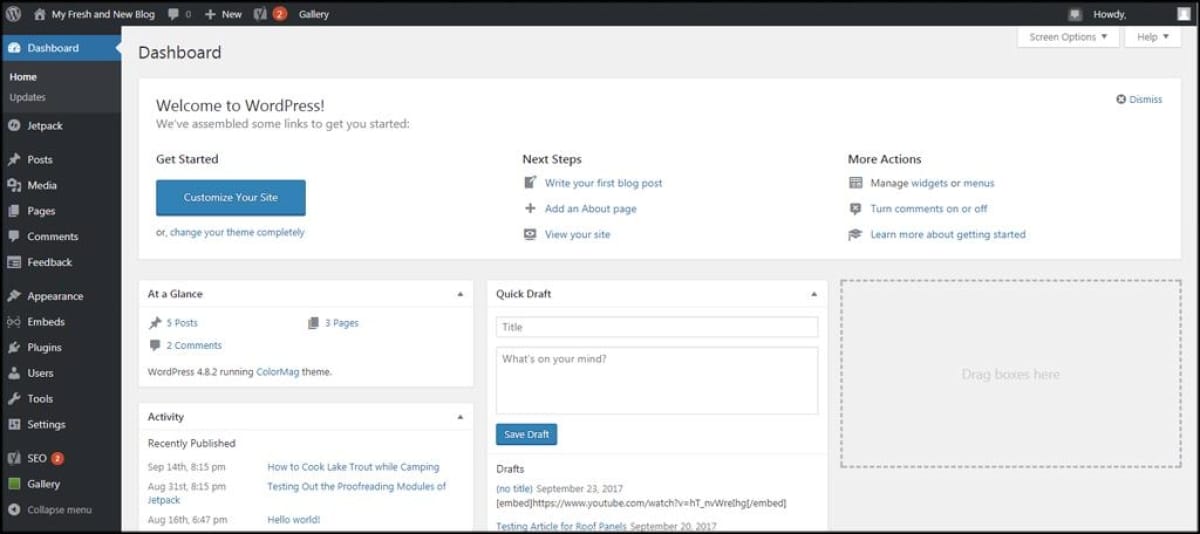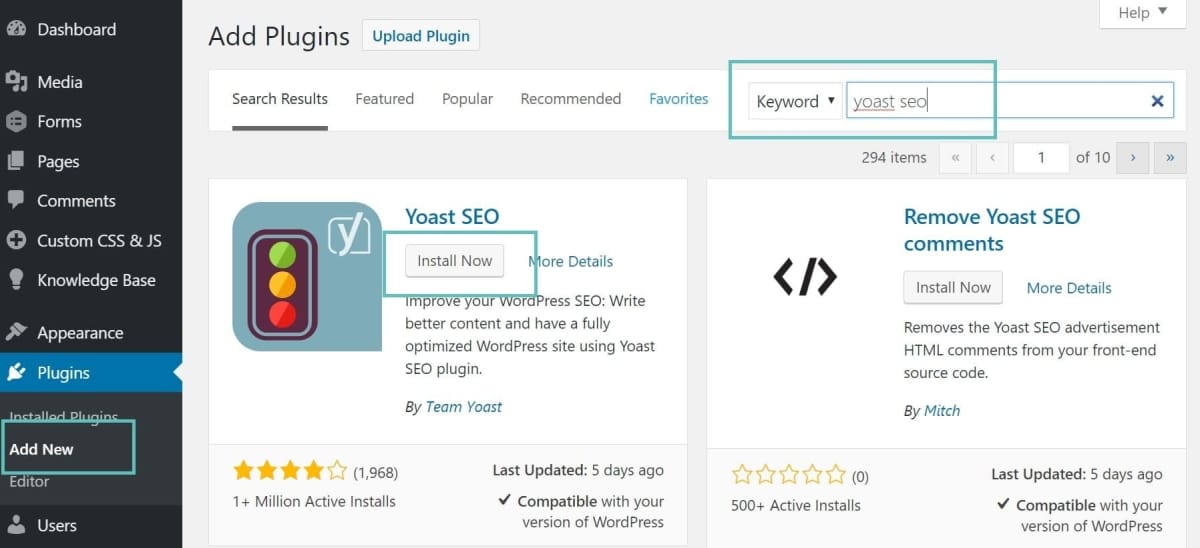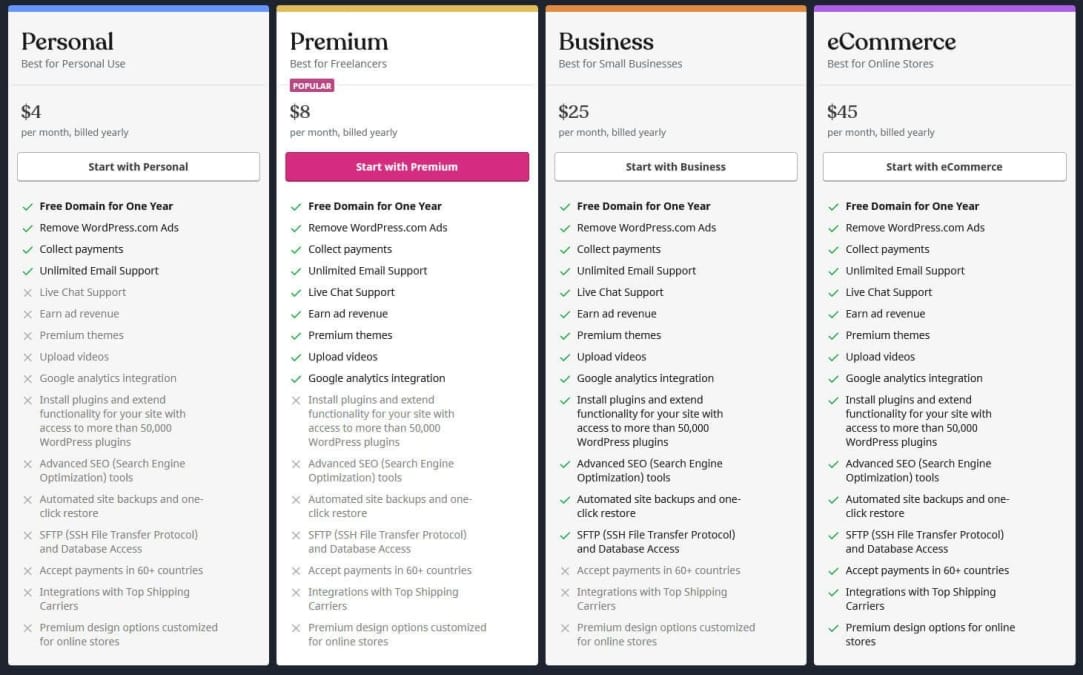In today’s digital world, websites are popping up faster than ever, and WordPress is right there in the spotlight. With its user-friendly design and endless customization options, it’s no wonder that more and more folks are turning to WordPress to build their online presence. But this raises a big question: is this simple-to-use platform putting web developers out of work? As we dive into the nitty-gritty of what WordPress can do, we’ll explore whether it’s a game-changer for the industry or just another tool in the toolkit for skilled developers.whether you’re a web whiz or just curious about the future of web development, stick around as we break down the impact WordPress is having on the job market for developers.
Table of Contents
- The Rise of WordPress and What It Means for Web Development
- How WordPress simplifies Websites: A Double-Edged Sword
- The Skill Set of Web Developers: Adapting to a WordPress World
- Finding Balance: Embracing WordPress While Keeping Your Edge
- Future-Proofing Your Career: Skills to Master in a WordPress Era
- Q&A
- In Summary

The Rise of WordPress and What It Means for Web Development
WordPress has come a long way since it first hit the scene as a simple blogging platform. Now, it’s one of the most popular tools for creating all sorts of websites, ranging from personal blogs to big business sites.Its user-friendly interface and a plethora of themes and plugins make it super appealing for folks who don’t know a thing about coding. you can literally get a site up and running within a few hours, making it a game-changer for many small business owners and hobbyists alike.
One of the major reasons for WordPress’s rise in popularity is its flexibility. Users can choose from a massive library of themes and plugins to customize their sites though they want. This means that even non-techies can create a professional-looking site without hiring a web developer. Hear are a few benefits of using WordPress that contribute to its growth:
- Open-source nature: Free to use and modify.
- User-friendly interface: Easy for anyone to learn.
- Large community: Lots of resources and support available.
- SEO-friendly: Built-in tools to help sites rank better.
However, all this accessibility doesn’t mean web developers are entirely out of a job.While WordPress enables many people to create their own sites, there’s still a huge demand for skilled developers who can build custom solutions. Not every business or project can rely solely on templates.For complex websites or unique functionalities, you’ll still need someone who knows coding inside and out.
So, while it may seem like WordPress could take over the web development scene, the reality is more nuanced. Developers are still needed for strategic implementations, troubleshooting, and maintaining site security. as WordPress continues to grow, it opens up opportunities for specialization in areas like custom plugin development, themes, and even site performance optimization. In short, it’s not about WordPress taking jobs; it’s about evolving roles in the web development landscape.

How WordPress Simplifies Websites: A Double-Edged Sword
WordPress has really changed the game for website building. It’s like the Swiss Army knife of the internet—super versatile and packed with tools that make creating a website a breeze for just about anyone. You don’t need to know a single line of code, and with thousands of themes and plugins out there, you can get your site looking the way you want in no time. this is a massive win for small businesses and entrepreneurs who don’t have the budget for a full-on web developer. They can get a professional-looking website up and running without breaking the bank.
But here’s the catch: while it’s easy to set up, customizing WordPress can be a different story. Sure, you can pick a theme and throw up some content, but if you want a truly unique site that stands out, you might find yourself neck-deep in code, trying to figure out CSS and HTML. That’s where the double-edged sword aspect comes in. Some folks might think they can do it all themselves and end up frustrated when they hit a wall. meanwhile,this can also make web developers feel a bit threatened since many people might choose the DIY route instead of hiring out.
Another point to consider is the maintenance side of things. Sure, WordPress is easy to set up, but keeping it updated and secure can turn into a real headache if you’re not tech-savvy. Plugins can clash, themes can break, and if you’re not careful, your site could become a sitting duck for hackers. Fortunately, this is where web developers shine.They can swoop in, troubleshoot issues, and make sure everything is running smoothly, essentially providing a safety net for those who took the DIY plunge.
there’s the community aspect to think about. WordPress has a huge support system filled with forums, tutorials, and user groups.This makes it easier for newcomers to learn tricks of the trade or find solutions to common problems. But this accessibility also means that there’s a lot of misinformation out there. What seems simple to one person might confuse another. So while WordPress opens doors, it doesn’t guarantee that everyone will walk through them successfully—and that’s where the expertise of web developers continues to hold value.

The Skill Set of Web Developers: Adapting to a WordPress World
These days, it feels like everyone’s talking about wordpress and how it’s reshaping the web development world. For web developers, it’s crucial to keep up with the way this platform is evolving. Sure, WordPress makes it super easy for businesses and individuals to build and maintain websites, but there’s still a huge demand for skilled developers who can dive deep and customize sites beyond the basics. Simply knowing how to drag and drop just won’t cut it anymore.
To stand out in a WordPress-dominated landscape, aspiring developers need to focus on a variety of skills. Here are some essential ones:
- HTML/CSS – Fundamental for making any website aesthetically pleasing.
- JavaScript – Helps add interactivity to WordPress sites, beyond what plugins offer.
- PHP – The backbone of WordPress. understanding PHP is crucial for theme and plugin development.
- SEO Best practices – Helping clients ensure their website gets found on search engines is a major plus.
WordPress has also unlocked a whole new level of opportunities for developers.Many businesses are looking for professionals who can not only build a site but also enhance its functionality with tailored plugins and themes. This is where knowledge of APIs and version control systems like Git comes in handy. Developers with the ability to integrate third-party services or customize functionalities can really make an impact.
here’s a swift look at how developer roles can change in a wordpress-focused surroundings:
| Role | Description |
|---|---|
| Theme Developer | Creates custom themes for unique website designs. |
| Plugin Developer | Builds custom plugins to add new features. |
| Site Optimization Specialist | Focuses on improving site speed and SEO performance. |
So, while WordPress is indeed making it easier for the average person to launch a website, it’s also creating a demand for skilled developers who can bring something special to the table. The web isn’t going anywhere, and as it continues to grow, so will the need for developers who can adapt, innovate, and elevate their craft in this WordPress world.

Finding Balance: Embracing WordPress While Keeping Your Edge
let’s be real for a minute: WordPress has made web creation super accessible. With its user-friendly dashboard and tons of themes, anyone can whip up a website in no time. But here’s the kicker: just because it’s easier for some folks to build sites doesn’t mean web developers are on the chopping block. The key is to find a balance that works for you and your skillset.
Take a look at what WordPress does best—it’s great for bloggers, small businesses, and even large brands that want a solid online presence without breaking the bank. However, when custom functionality comes into play, that’s where a professional developer can really shine.Developers have the knack for creating bespoke solutions and adding those unique touches that set a brand apart. So, while WordPress is a powerful tool in the toolbox, sometimes a little expertise goes a long way.
Here are a few things developers can do to keep their edge in a WordPress world:
- Learn the basics of WordPress: Understanding how it works helps you collaborate better with clients.
- Focus on custom themes and plugins: Offering tailored solutions makes you more valuable.
- Keep up with trends: Web tech evolves fast, so stay in the loop to see where you can fit in.
Check this handy comparison table—it’s a quick look at what WordPress excels at versus what a developer brings to the table:
| WordPress | Web Developer |
|---|---|
| Easy to use for basic sites | Custom solutions for complex needs |
| Quick setup with templates | Original designs tailored for brands |
| Community support and resources | Expert troubleshooting and customization |

Future-Proofing Your Career: Skills to Master in a wordpress Era
As we move deeper into the digital age, it’s essential to keep an eye on the skills that’ll keep you ahead in the workforce. With WordPress being such a dominant player in the web development scene, understanding a few key areas can really give you an edge. People frequently enough think just knowing how to set up a site on WordPress is enough—spoiler alert, it’s not. Here are some skills you should keep in your toolkit:
- Content Management: knowing how to create, update, and manage content is crucial. you need to understand how WordPress CMS functions to keep websites fresh.
- SEO Basics: Search engine optimization is still king. Even if you rely on WordPress plugins, knowing the basics of SEO will make you invaluable.
- User Experience Design: Understanding how users interact with sites can set you apart. Simple changes can make a world of difference in usability.
- Custom Development: While WordPress is user-friendly, the ability to customize themes or plugins will always be in demand. Learning some PHP and javascript can give you that flexibility.
Networking and community engagement are also essential skills.It’s not just about what you know but who you know. Participating in forums, attending meetups, and contributing to WordPress communities can expand your horizon and open up new opportunities. This is where you can exchange ideas, get tips, and even find potential job leads. Plus, being active keeps you updated on the latest trends.
Lastly,don’t forget about adaptability. The digital world changes all the time, and what’s hot today might be yesterday’s news tomorrow. Keeping a growth mindset—always learning and exploring new technologies—will make you less likely to be left behind. Here’s a small table to summarize what you should focus on:
| skill | Why It Matters |
|---|---|
| Content Management | Critical for keeping sites relevant |
| SEO Basics | Improves visibility on search engines |
| user Experience Design | Makes sites more user-friendly |
| Custom Development | Allows for personalized solutions |
Q&A
Q&A: Is WordPress Going to Take Over Web developers’ Jobs?
Q: So, is WordPress really gonna kick web developers to the curb?
A: Nah, it’s not about to send web developers packing! WordPress is a powerful tool that makes building websites easier, but it doesn’t mean that developers are out of a job. It’s kind of like how smartphones didn’t make phone manufacturers go extinct—there’s still a lot that goes into making those devices work!
Q: I mean, can’t anyone just slap a WordPress theme on their site and call it a day?
A: Totally! That’s one of the cool things about WordPress. It’s super user-friendly and lets everyday folks create their own sites. But here’s the thing—just because you can doesn’t mean you should. A lot of businesses want a unique look or specific features, and that’s where skilled developers come in to save the day!
Q: What about all the plugins and stuff? Isn’t that enough for most people?
A: Plugins are great! They let users add functionality without coding a whole site from scratch. But here’s the catch: while plugins can do a lot, sometimes they don’t quite fit what a business needs. That’s when web developers slide in to create custom solutions or optimize existing ones. It’s kind of like having your favorite ice cream but wanting to add your own toppings.
Q: are there any roles that might disappear because of WordPress?
A: There might be some entry-level positions that could change,like folks who mainly create basic sites. But remember, as WordPress grows and evolves, so do the skills needed to work with it. Developers who can create custom themes,optimize performance,or enhance security will always be in demand.
Q: What should web developers do to stay relevant in this WordPress world?
A: Great question! Developers should keep working on their skills—think coding, UX design, and website optimization. Staying updated on the latest trends and tools will help. Also, diving into areas like SEO, digital marketing, or e-commerce can set them apart. It’s all about being adaptable and learning how WordPress fits into the bigger picture.
Q: So, at the end of the day, should we worry about WordPress?
A: Not really! WordPress is just another tool in the web development toolbox. It can make things easier for some, but there will always be a need for skilled web developers who bring expert knowledge and creativity to the table. As long as people want unique, high-quality websites, developers will have their place!
In Summary
In wrapping things up, the question of whether WordPress is coming for web developers’ jobs isn’t a simple yes or no answer. Sure, WordPress makes it easier for folks to whip up websites without needing a degree in coding, but that doesn’t mean web developers are going the way of the dodo.There’s still a ton of value that pros bring to the table—custom designs,complex functionality,and a knack for troubleshooting.
Think of it this way: WordPress may be a powerful tool in the toolbox, but skilled web developers are like the experts who know how to build the whole house. As long as businesses need unique, tailored online solutions, there’ll be a place for web developers in the mix. So, whether you’re a developer or someone thinking about starting a site, it might be worth keeping an eye on how these technologies evolve together. After all, change is the only constant in the world of the web!






